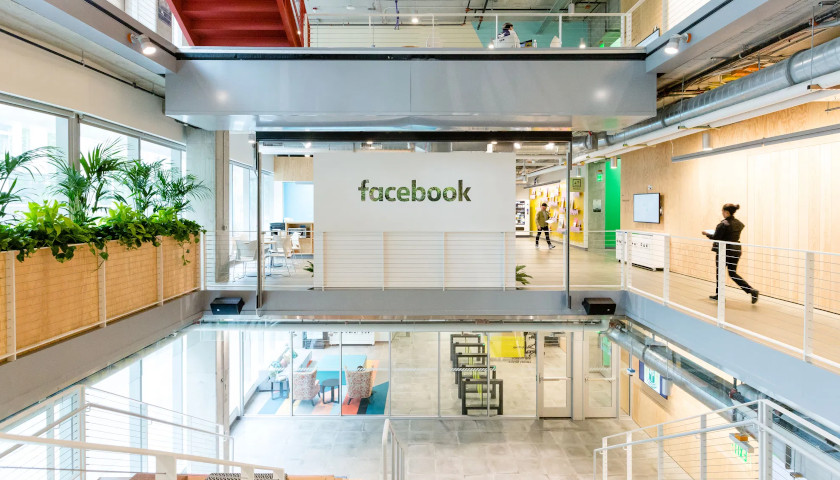by Kalev Leetaru
Last week Silicon Valley silenced the president. In unison, the social media giants, with an assist from Amazon and Apple, also eliminated their most popular conservative competitor and announced that their own moderation policies would now extend to other companies. Meanwhile, CNN openly called for Fox News to be banned from cable, while a major talk radio network issued new speech rules to its hosts, extending tech’s moderation policies to the offline world. Beyond all this, Congress and the European Union called for powerful new regulation of online speech.
As a handful of unelected billionaires declare sovereignty over digital speech, where might the coming months take us?
Twitter once touted itself as “the free speech wing of the free speech party” and rebuked Congress’ calls for it to ban terrorists, proclaiming that “the ability of users to share freely their views — including views that many people may disagree with or find abhorrent” — was its mission. Indeed, most of the early social platforms emphasized unfettered speech above all other considerations. Over the years, this utopian dream has given way to an emphasis on “healthy conversation” and ever-changing enforcement.
Yet for most of their existence, social media platforms have largely avoided censoring elected officials in the U.S. even as they have deleted the accounts of foreign leaders. That all changed last year as Silicon Valley for the first time began labeling President Trump’s tweets as “disputed” and “false.” As progressive segments of the public embraced this new censorship, platforms moved from merely fact-checking posts to deleting them entirely and threatening to ban some lawmakers.
The courts have repeatedly ruled that Trump’s Twitter account is an official government outlet and thus he is prohibited from blocking users with whom he disagrees. How then is a private company able to establish “acceptable speech” rules for a government publication or silence it entirely?
Perhaps more troubling is that speech rules no longer just govern social spaces. Uber, Lyft and Airbnb have all banned their services from being used by those whose online and offline political speech was deemed unacceptable. Facebook last year extended its reach to the offline world, banning certain kinds calls for protest while permitting others.
It was a remarkable sight to behold Democratic lawmakers and the press lamenting that Congress does not have the power to silence voices with which it disagrees and instead urging Silicon Valley to exercise the power only it holds: the ability to silence any voice from the digital world. And this plea came from the very lawmakers who had once condemned social platforms as dangerous monopolies.
Moreover, the companies’ announcements that they were permanently suspending the president referenced not potential illegal activity banned by law but rather the companies’ decision that permitting him to continue communicating with the nation posed too great a risk to democracy.
The companies themselves had little choice but to remove Trump or face even greater wrath from the new Democratic majority in Congress. Even the ACLU, in its condemnation of Twitter’s suspension of Trump, acknowledged the “political realities” of the incoming administration. Activist groups rushed to claim credit for silencing Trump, touting the high-level discussions they had had with Twitter leadership.
While there has been widespread support for Silicon Valley’s actions, German Chancellor Angela Merkel warned of the dangers in silencing a democratically elected head of state. Moreover, while Democrats are narrowly focused on the present, in a world in which lawmakers and activist groups can wield the monopoly power of social media to mute dissenting voices, what is to stop a future Republican Congress from using those very same powers to silence Democrats? Such is the slippery slope we find ourselves on.
And what about alternatives to Silicon Valley’s platforms? Social media companies have long argued that they are not monopolies because it is possible for competitors to challenge them.
Twitter clone Parler had emerged as just such a competitor, reaching number one on Apple’s App Store this week as conservatives flocked to its minimally moderated platform. Yet within days Apple and Google had banned the sale of it from their respective app stores and banishing it from mobile devices. Parler’s cloud hosting provider, Amazon Web Services, evicted it, taking the site offline until a conservative cloud provider agreed to host it. Yet even if it can rebuild in some fashion, without a smartphone app and blacklisted by most service providers, Parler will be merely a shadow of its former self.
In taking these steps, Silicon Valley cited Parler’s lack of strong content moderation as grounds for elimination. In their letters to Parler, the companies demanded that it adopt acceptable speech policies identical to their own.
Even offline media are not immune. Television channels must contract with cable carriers to transmit them into homes, syndicated radio shows must be hosted by stations, and even independent newspapers must have websites and mobile apps. With local news outlets diminishing, it is important to note that no matter how editorially independent some may be, all are still dependent on cloud providers, app stores, Internet service providers, etc. In the aftermath of Wednesday’s events at the Capitol, CNN openly called for cable carriers to drop Fox News, while Cumulus Media issued new acceptable speech rules to its conservative talk radio hosts.
Where does this leave us?
The nation’s founders chose not to give Congress the power to silence even a madman in the Oval Office, other than to remove him through impeachment. This week taught us that a handful of billionaires in California essentially have that power. Trump’s near-total disappearance from the digital world since his ban serves as a stark reminder of this.
The near-unanimous support from the new Democratic majority for this ban means Silicon Valley is now emboldened to eliminate any voice, no matter how powerful. It creates a dangerous normalization of the silencing of dissent.
The willingness of Uber, Lyft and Airbnb to ban some users for political speech shows that as technology companies’ tentacles reach into other industries, a new era of permanent societal exclusion, much like China’s “social credit” program, is emerging.
To some, the newfound emphasis on combating “misinformation,” with private companies as curators of permissible speech and definers of “truth,” might seem like a positive development. After all, threats of violence, racism, sexism, doxing, sedition, harmful medical advice and the like are damaging to society. Yet billionaires that can silence presidents, a Congress that can silence dissent and private companies deciding what is “best” for the nation and what constitutes “truth” pose an existential threat to democracy. In the end, the very future of our shared society hinges on the ability of Silicon Valley to balance thoughtful moderation with freedom of speech. Perhaps the answer is for the tech companies to become democracies themselves and let society decide what is best.
– – –
RealClear Media Fellow Kalev Leetaru is a senior fellow at the George Washington University Center for Cyber & Homeland Security. His past roles include fellow in residence at Georgetown University’s Edmund A. Walsh School of Foreign Service and member of the World Economic Forum’s Global Agenda Council on the Future of Government.
Photo “Facebook Workplace” by Facebook.






If this doesn’t qualify as a “conspiracy in restraint of trade” (by Amazon, Apple, & Alphabet (parent company of Google), then I don’t know what does. Where are all the antitrust zealots who are always so quick to complain when their ox is being gored?